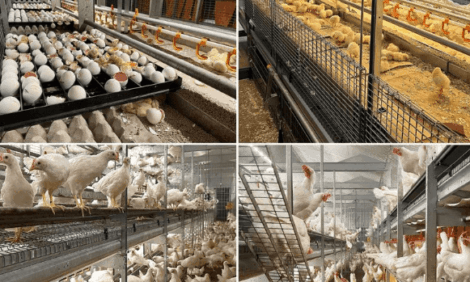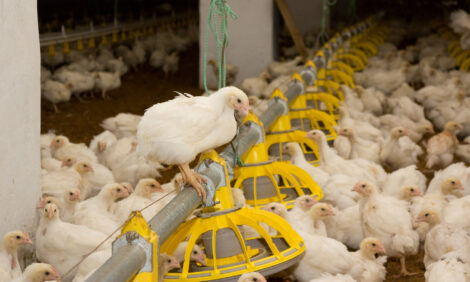



HVT Immunity, Interest of Using Such Virus as Vector
Dr Jagdev Sharma of Arizona State University explains why turkey herpes virus (HVT) is chosen as a vector in vector vaccines against Marek's disease. He was speaking at the Vector Vaccines Symposium organised by Ceva Santé Animale in San Diego in October 2010.Turkey herpesvirus is non-pathogenic for chickens and is commonly used as a vaccine to protect commercial chicken flocks against tumor formation, immunosuppression and mortality caused by virulent Marek's disease virus (MDV). HVT and MDV are serologically related herpesviruses and immune responses induced by HVT apparently cross-protect against MDV.

HVT has been shown to induce innate and adaptive immune responses. Natural killer cell activity is upregulated and virus-specific humoral and cellular immune responses are generated. Which of these responses singly or in combination mediate effective protection against MDV is not known.
Studies in immuno-compromised chickens have indicated that protection is associated with cellular rather than humoral immunity. Infection with HVT results in persistent viraemia. When HVT-vaccinated chickens become exposed to MDV, both viruses persist in the host, probably for life. The genomic structure of HVT, its wide-spread usage as a vaccine against MDV and its ability to remain persistent in chickens, make this virus an attractive vector for producing recombinant poultry vaccines.
In addition, because the virus is cell-associated, HVT-vectored vaccines may induce protective immunity despite the presence of specific antibodies at the time of vaccination.
One of the most attractive features of HVT as a vector for recombinant poultry vaccines is the ease with which this virus can be administered to large populations of chickens. Currently, most major hatcheries inject HVT in eggs at around the 18th day of embryonation.
A single, automated multiple-head injector can administer the virus to over five thousand eggs per hour. In-ovo vaccination does not affect hatchability of eggs or survival of hatched chickens. Although the virus replicates extensively in the embryonic tissues, the virus does not cause immunologic tolerance and, under normal circumstances, induces no detectable pathological lesions in the embryo or the hatched chicken.
Laboratory and field studies have shown that multiple vaccines may be combined with HVT for in-ovo immunisation.
Further Reading
| - | You can view other papers presented at the Vector Vaccines Symposium by clicking here. |
Further Reading
| - | Find out more information on the diseases mentioned in this article by clicking here. |
November 2010









